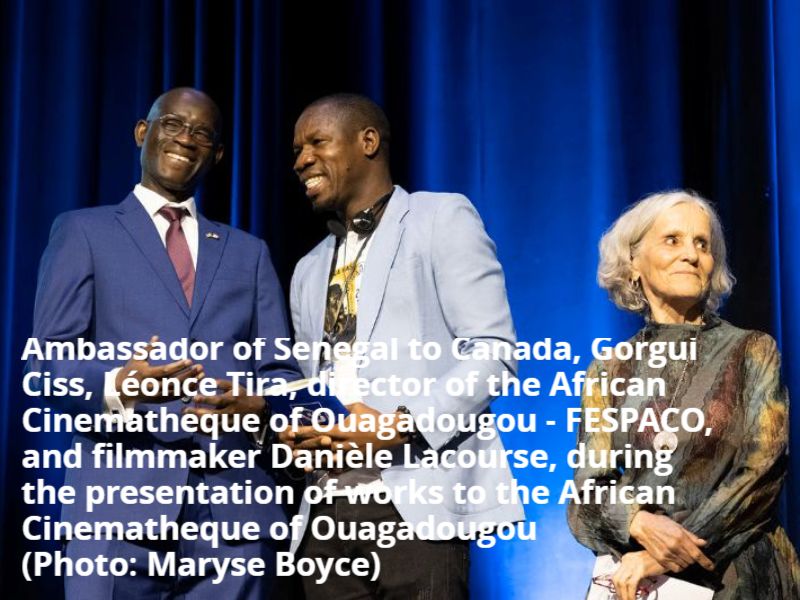On June 2, a Facebook post from FESPACO linked to news of a rare African film archive that had just been handed over to its institutional partner, the Cinémathèque Africaine de Ouagadougou. The news was captured by Canada’s Cinémathèque québécoise, confirming what is—by any measure—a rare act: a Western institution deferring long-term archival responsibility for African historical memory to African organizations.
The handover occurred in May, during the FIAF Congress in Montreal. Nearly 500 Betacam tapes documenting major African conflicts from 1985 to 1996 were formally transferred to Burkina Faso’s Cinémathèque Africaine. The material was shot by Canadian filmmaker Danièle Lacourse and her late partner Yvan Patry during key moments in Eritrea, Ethiopia, and post-genocide Rwanda.

It includes what may be the only professional footage from four separate shoots during the Eritrean War of Independence (1985–1991) and three shoots documenting Rwanda’s post-genocide reconstruction (1994–1996), captured at a time when Lacourse and Patry were the only film crew on the ground.
The archive’s preservation and digitization were made possible by a cooperation agreement between the Cinémathèque québécoise, Burkina Faso’s Cinémathèque Africaine, and Senegal’s Institut Fondamental d’Afrique Noire (IFAN – Cheikh Anta Diop), with financial backing from the Québec–Sénégal Cooperation Program (2024–2025), managed by the Ministry of International Relations and Francophonie.
Initially offered to the Cinémathèque québécoise in 2017 and again in 2021, the archive was rejected both times—not because of its historical value, which was acknowledged, but because the institution saw itself as unfit to actively valorize it. Even I was admittedly surprised by the openness of that admission. Rather than claiming neutrality, ownership, or default expertise—as is often the case in Western archival contexts—the Cinémathèque québécoise effectively admitted: “This doesn’t belong with us.” That kind of self-deprecating stance, particularly in the realm of memory and preservation, goes against a long-standing pattern of cultural gatekeeping. In fact, it’s not just surprising; it’s almost unheard of.
The archive found new life after Léonce Tira, director of the Ouagadougou cinémathèque, discovered its potential during a 2023 professional exchange in Montreal. With logistical concerns around transporting physical tapes, the final compromise involved digitization in Quebec and symbolic transfer of access and preservation rights to African institutions. The process required over 250 hours of work, led by Nicolas Martel, including digitization, transcoding, and archiving for long-term preservation.
The agreement grants Ouagadougou stewardship over the archive itself, while IFAN will hold access copies for research and organize future programming around the collection. Plans include a dedicated study day involving researchers from Rwanda, Eritrea, and Ethiopia to explore the archive’s historical and academic relevance.
This move places Ouagadougou—already home to FESPACO and one of the continent’s most ambitious film archives—at the center of an uncommon act of archival restitution, in a global landscape where African memory is often preserved elsewhere.
As I’ve previously captured, Burkina Faso has made deliberate moves to consolidate its cinema infrastructure under local control, from FESPACO’s African Film Library to the state-backed creation of the Agence Burkinabè de la Cinématographie et de l’Audiovisuel.
This latest transfer aligns with those shifts, and maybe presses other countries, both on the continent and off, to take cultural responsibility more seriously, and to meet that standard.
For more exclusive coverage, analysis, insights, and intelligence on Africa’s screen ecosystems, subscribe to Akoroko Premium for daily newsletter drops.
Localized pricing live in Botswana, Kenya, Namibia, Nigeria, South Africa, Tanzania, Uganda, Zambia, and Jamaica.
7-day free trial included.
Subscribe: https://akoroko.com/localpricing/